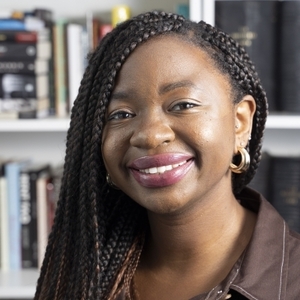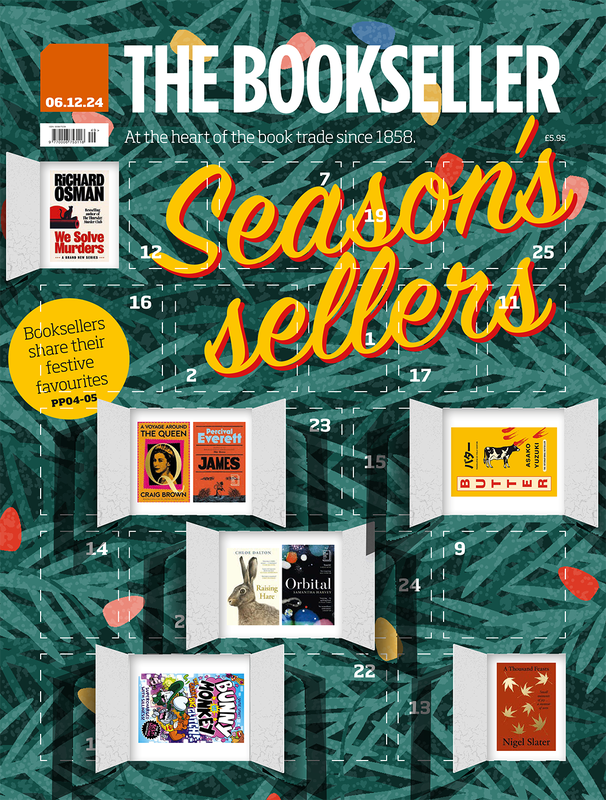You are viewing your 1 free article this month. Login to read more articles.
Mateo Askaripour | 'The lines are intentionally blurred, which puts the responsibility on the reader to decide what’s what'

Mateo Askaripour’s Black Buck is a whip-smart satire about salesmanship, office politics and systemic racism–and it’s won him huge plaudits, writes Marianne Tatepo

On publication in January, Iranian-Jamaican Brooklynite Mateo Askaripour’s Black Buck became an instant New York Times bestseller. Described as “a crackling, satirical début novel”, and informed by the author’s own experiences in the tech world, the book has been compared to The Great Gatsby (NPR) and comes with the endorsement of two-time Pulitzer Prize winner Colson Whitehead, who called it “a high-wire act full of verve and dark, comic energy”. We spoke to Askaripour about sales, craft, liberation and writing for a Black readership.
Your book is, among other things, about sales. So I’d be remiss if I didn’t start this by asking, “What’s your elevator pitch for Black Buck?”
This may come as a disappointment, but I don’t have an elevator pitch for Black Buck. I usually give a personal synopsis of the book, and if someone’s feelin’ it, they’ll read it. If not, all good—no one has time to read books they’re not interested in!
With that said, my synopsis is as follows. Black Buck is about a happy but unambitious young man named Darren, who lives in Brooklyn and works at Starbucks in midtown Manhattan. One day everything changes when Darren decides he’s going to up-sell the silver-tongued c.e.o. of NYC’s hottest tech start-up on his regular coffee order. This results in Darren joining the elite sales team at the start-up, where he finds that he’s the only Black person in the entire company.
Darren goes through hell and back in order to make it to the top, and once he’s there—amassing money, power, and status—he says, “You know what? I don’t like being the token Black guy,” and hatches a plan to help other people of colour infiltrate the world’s tech start-up sales teams, redefining what it means to be a minority in the workplace.
You address the reader directly. Who exactly did you have in mind when writing this book, and what do you want them to take away from it?
When I was writing Black Buck, I had Black people in mind. I wanted to write a book that would speak to those who have been the only one, or one of a few, in a variety of environments, including the workplace. One of the main goals of this book is empowerment, and to let anyone who has ever been the resident Other know that they are not crazy, paranoid or overly sensitive when they perceive something to be amiss in these places—and that they, too, deserve the chance to succeed. Of course, I’m happy when anyone takes the time to read my novel, and have enjoyed seeing the different reactions and responses to it.
Aside from being an engaging narrative, I also wanted the book to double as a sales manual, and breaking the fourth wall was one way of hitting that point home. There are dozens of gems throughout the novel, and my hope is that if people pay close attention to Darren’s journey, as well as the pieces of sales and life advice he’s dispensing throughout the book, they’ll be able to gain new ways of advancing themselves and the lives of those they love.
The book offers a really interesting perspective on capitalism. How much of that mirrors your own views? Is there anything surprising about Black capitalism and/or liberation that you found out while you were researching or writing this book?
We see capitalism viewed in many ways, by many people, throughout the book. There are those who view it as a system predicated on putting profits over people, others who behave as though it’s as organic an occurrence as the Sun rising and setting, and many who never think about it at all. It’d be hard to quantify how much of these views mirror my own, because, like much of the book, the lines are intentionally blurred, which puts the responsibility on the reader to decide what’s what.
However, something that is in the title of the book, as well as a prominent theme in the latter half, is the concept of Black people empowering themselves financially, which I wholeheartedly believe in. It is not the only form of liberation—mental, emotional, and spiritual are others that, in many cases, are more important than the financial—but it is one way that should continue to be discussed and promoted. Lack of information is a form of enslavement, so if you have knowledge that can free others, and help them better their situations, why wouldn’t you share it?
What is your writing process?
I have a very detailed routine, which begins the night before I actually write. But in an attempt to spare you of my neuroses, I’ll just say it includes meditation, waffles, yerba-maté, watching two to three hours of music videos and movie trailers, an inspiration folder, and dancing. In terms of my writing process, I liken it to driving down a dark path with headlights on, where more of where you’re going is revealed to you the farther you travel.
When beginning Black Buck, I had an idea of where I wanted it to go, the big twist, and a few other aspects of the story, but I mostly figured it out as I went along. With a past work that has never seen the light of day, I outlined the hell out of it, from beginning to end, and while it was more controlled, it lacked the vigour and energy that I wanted it to have.
With anything I write, whether an essay, novel or short story, I don’t judge myself during the act of creation—the point is to stay loose, have some fun, and finish. After, I revise with my mind, looking to see what’s unnecessary, if the sentences sound how I want them to, with a specific rhythm. And as I move from draft to draft, I get to know the characters better. This deepening of our relationship informs changes I make so that I’m rendering them as authentically as possible on the page.
Where are you now, and what’s next for you? Can we expect a visit to the UK soon?
Right now, I’m in Brooklyn, still promoting Black Buck in the States—university and school visits, corporate speaking engagements, Instagram Lives (join me on Fridays at 5 p.m. UK time at @AskMateo), popping in on book clubs when I can, writing articles and essays—and gearing up to connect with all of you beautiful people in the UK. I would love nothing more than to visit you all in person. If the pandemic improves enough, I’ll most definitely be there some time this year. Please have the tea and biscuits ready, but none of that Marmite stuff.
Mateo Askaripour was a 2018 Rhode Island Writers Colony writer-in-residence, and his writing has appeared in Entrepreneur, Lit Hub, Catapult, the Rumpus, Medium and elsewhere. Black Buck will be published in the UK by John Murray on 27th May.








